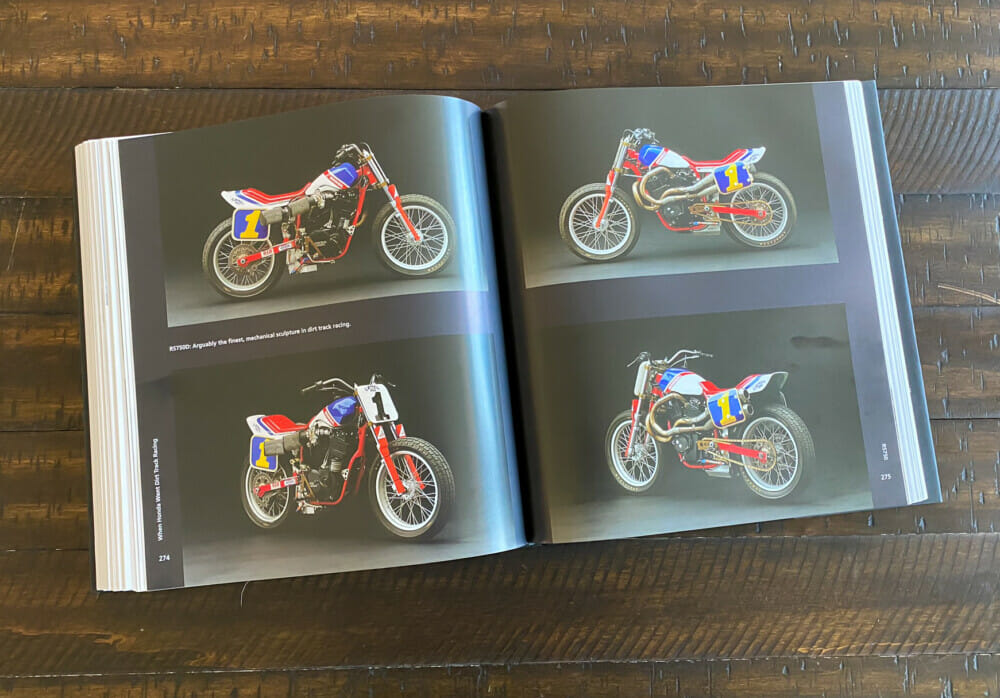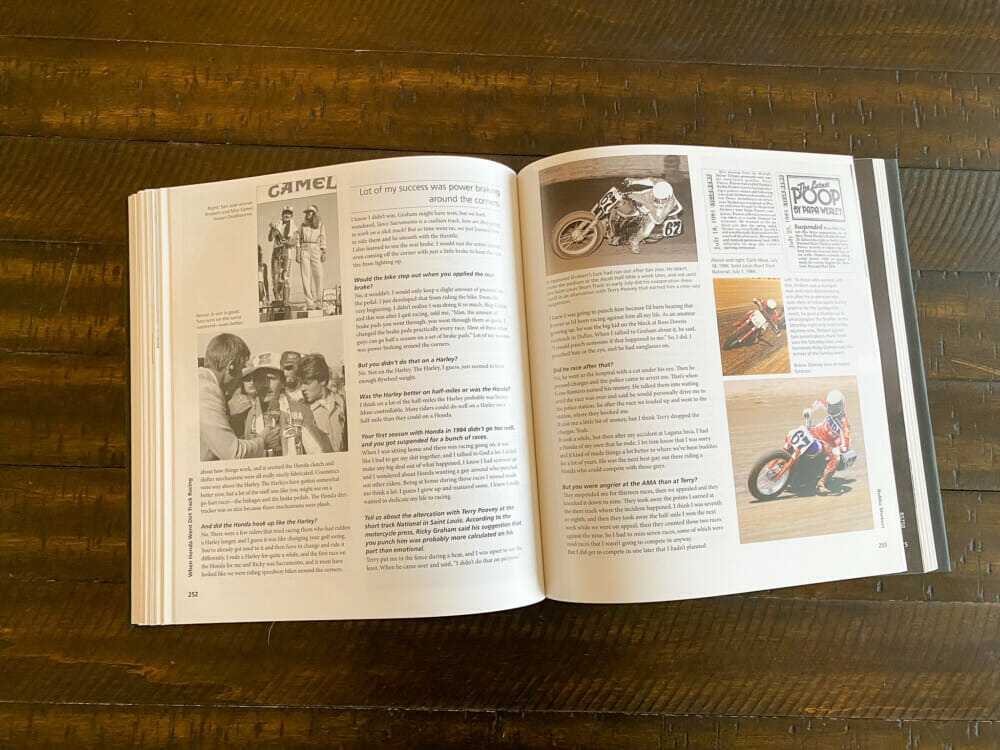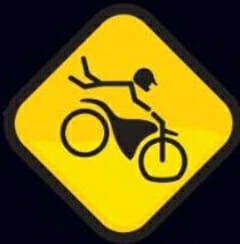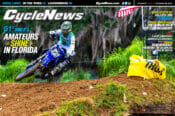If you are a fan of motorcycle dirt-track racing—or flat track, as many people call it—you will enjoy When Honda Went Dirt Track Racing.

It is a whopping 560 pages of stories, mostly interviews with the people that were part of the era between 1982 and 1993 when Honda made a huge impact on the sport previously dominated by Harley-Davidson. In many ways, it is like the story playing out in American Flat Track ever since Indian entered the series in 2017 and displaced Harley, which had dominated the championship since the last Honda championship in 1993.
The book was published by Chris Carter, founder of the popular specialty motorcycle tool company, Motion Pro. He grew up in Northern California and worked at a shop called A&A Motors starting in high school and later at Rocky Cycle (one of the companies that became part of Tucker Rocky Distributing, now called Tucker Powersports). Both companies were heavily involved with dirt-track racing, and he continued to be involved with the sport via Motion Pro. Carter is a super fan of motorcycle racing and dirt track in particular, and he has an extensive collection of historic motorcycles, including several championship-winning machines. He commissioned Gerald Foster, a British ex-pat that worked for BSA and Triumph before a long career at American Honda.
Foster and Carter worked on this project for several years, compiling the interviews and photos and combing through the Cycle News Archives for the details that tell this story. Like Indian in recent years, Honda dominated the sport of motorcycle dirt-track racing, winning four consecutive championships from 1984 to 1987, which prompted restrictions to try to allow the other brands, primarily Harley-Davidson, to compete. Honda closed down its factory dirt-track team at the end of the 1987 season, but several riders continued to race the Honda RS750 that won those four consecutive championships, and Ricky Graham won the 1993 AMA Grand National Championship on a privateer Honda. It was the late Graham’s third title and Honda’s last.

Lowdown
Standout Feature: Great stories and insight into dirt-track racing and Honda’s racing program from the ’70s and ’80s
List Price: $224.99

Reader Analysis
I have been a fan of motorcycle racing since I was a kid and followed the sport primarily via Cycle News and the old MotoWorld TV shows. I was in high school during the four-year run that Honda dominated dirt track racing with four championships, so I found it cool to learn a lot more about the back stories behind that era.
This is different from a typical book that you read front to back. It is a compilation of 67 interviews with many of the racers, mechanics, team managers, wives, girlfriends and other people connected to this era of motorcycle dirt-track racing. The interconnected stories and many of the names involved make for compelling reading. Ricky Graham and Bubba Shobert were the riders that won five championships for Honda, but people like Skip Eaken, Rob Muzzy, Doug Chandler, Terry Poovey and countless others you have likely heard of were part of those stories.
The book starts with Dennis McKay, responsible for Honda’s motorcycle-racing programs from 1978 to 1981, and the person credited with getting Honda into dirt-track racing. He handed out some single-cylinder XR500 off-road motorcycle engines to a few racers, including Mickey Fay, who won the TT race at the Houston Astrodome in 1979 on one of those bikes. By 1981, Honda had a factory team racing NS750s that included Freddie Spencer (who went on to win multiple World Road Racing Championships) and Jeff Haney, one of those first riders to race the single-cylinder Honda-powered bikes a few years before. McKay’s stories about the creative budgeting necessary to pull off those early years of Honda’s racing program are fascinating.
There are enough great stories, photos, and old race coverage within this 7.25-pound book to keep you occupied for countless hours of reading, so be warned that you will need time to get through it. But like any good book, you will likely have a hard time stopping.CN
For more information, visit www.motionpro.com
Click here to read the When Honda Went Dirt Track Racing book review in the Cycle News Digital Edition Magazine.
Click here for more New Products on Cycle News.


